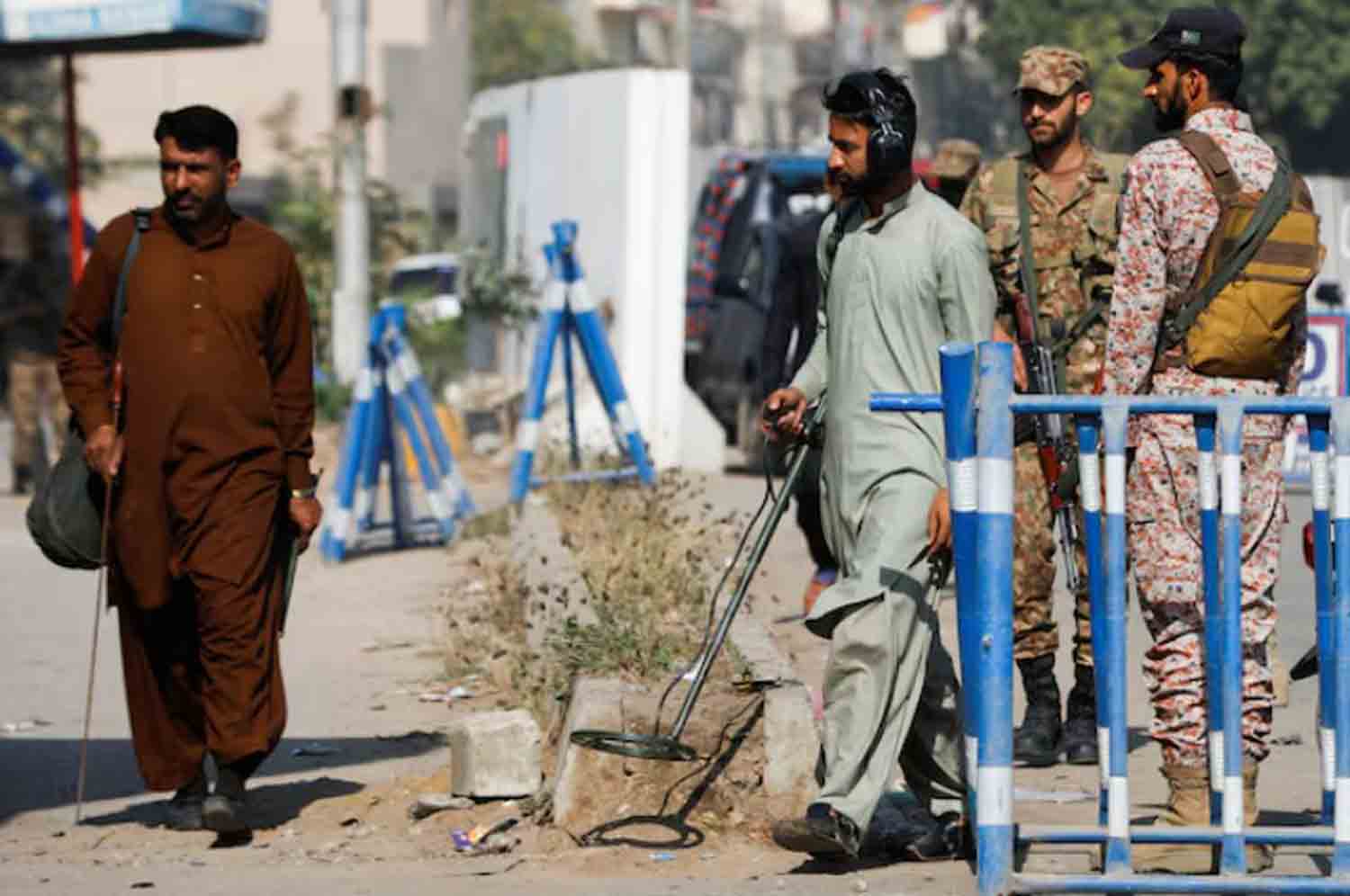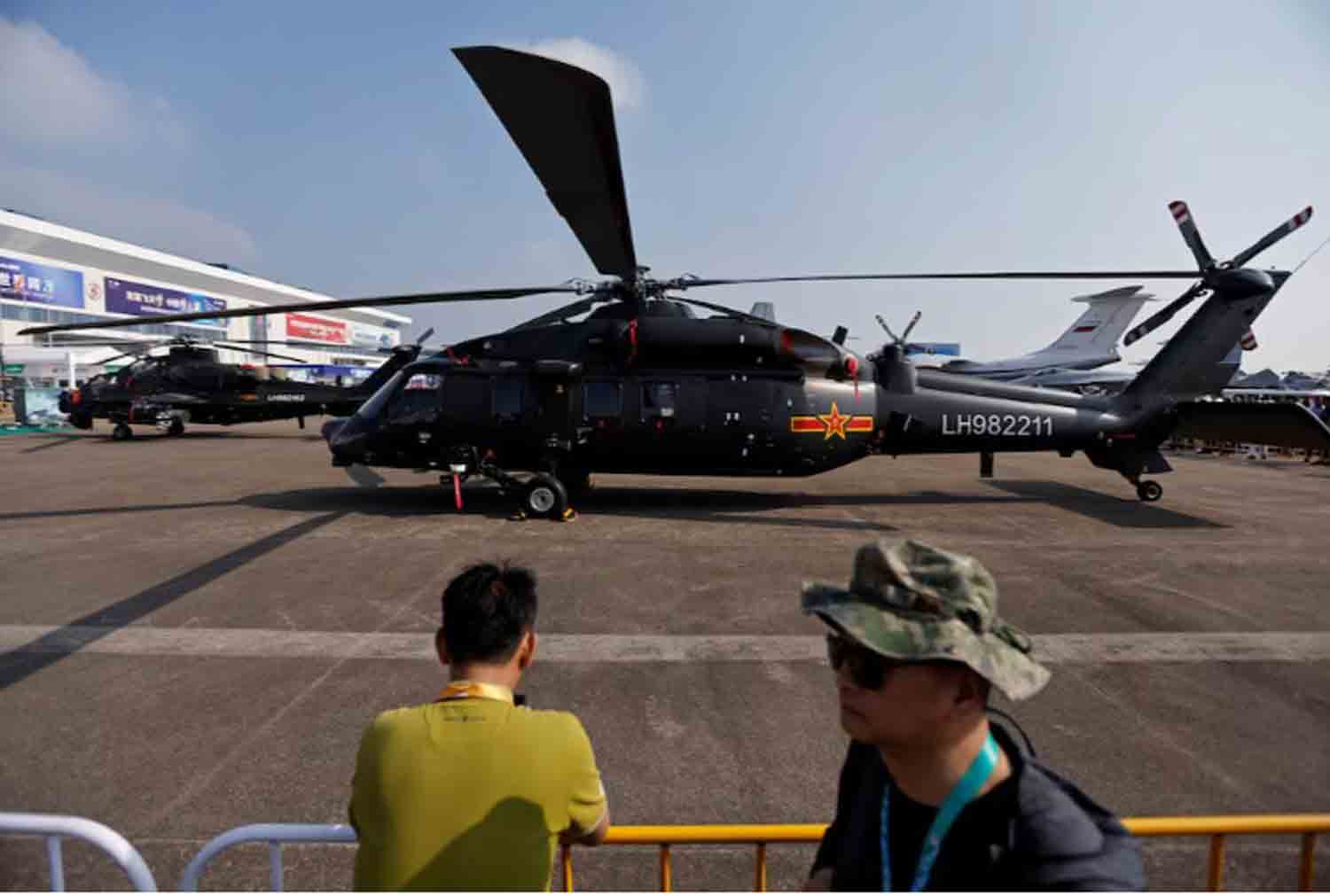Beijing is urging Pakistan to permit its security personnel to safeguard the thousands of Chinese nationals employed in the South Asian country, following discussions prompted by a car bombing in Karachi that raised significant security concerns, according to sources.
The recent bombing at the airport in the southern port city, which resulted in the deaths of two Chinese engineers returning to their work after a holiday in Thailand, marks the latest incident in a series of attacks targeting Chinese interests in Pakistan.
These assaults, coupled with Islamabad’s inability to prevent them, have frustrated China, leading it to advocate for formal discussions on establishing a joint security management framework with Pakistan.
Five Pakistani security and government officials, who possess direct knowledge of the previously undisclosed negotiations and demands, spoke to Reuters on the condition of anonymity due to the sensitive nature of the talks. “The Chinese are seeking to deploy their own security forces,” noted one official who participated in a recent meeting, indicating that Pakistan has yet to consent to this proposal.
It remains uncertain whether Beijing intends to deploy state or private security forces for this initiative.
Neither Beijing nor Islamabad has officially confirmed the discussions. According to a source and two additional officials, there is agreement on establishing a joint security management framework, with Pakistan open to the idea of Chinese officials participating in security meetings and coordination efforts.
However, no consensus has been reached regarding their involvement in on-the-ground security operations.
The first official indicated that Pakistan has sought China’s assistance in enhancing its intelligence and surveillance capabilities rather than direct participation. A spokesperson for China’s foreign ministry informed Reuters that they were not aware of any discussions regarding a joint security arrangement, but emphasized that “China will continue to enhance cooperation with Pakistan and work together to ensure the safety of Chinese personnel, projects, and institutions.”
Inter-Services Public Relations, the communication branch of the Pakistan army, chose not to provide any comments. The ministries of interior and planning did not reply to multiple requests for statements.
In a recent announcement, Pakistan’s interior ministry indicated that both parties had agreed to formulate a collaborative strategy to avert similar occurrences in the future.
‘SEVERE SECURITY FAILURE’
The nature of the bombing in Karachi has provoked significant anger from Beijing, which is now intensifying its demands for greater control over security measures for its citizens.
According to officials, a pick-up truck loaded with nearly 100 kg (220 lbs) of explosives remained unchecked for approximately 40 minutes near the outermost security perimeter of the heavily fortified airport before the driver crashed it into a vehicle transporting Chinese engineers.
“This represents a severe security failure,” acknowledged one official involved in the investigation, which occurred just a week prior to Chinese Premier Li Qiang’s visit to Islamabad, marking the first such visit in a decade. The official noted that investigators suspect the attackers received “inside assistance” in obtaining information about the engineers’ itinerary and route, as they had just returned from a month-long vacation in Thailand.
The engineers were scheduled to be escorted back to a power plant that is part of the China-Pakistan Economic Corridor (CPEC) initiative.
China, a long-standing ally of Pakistan, has thousands of its nationals engaged in projects associated with the CPEC, a $65 billion investment under President Xi Jinping’s Belt and Road Initiative, aimed at enhancing China’s global influence through infrastructure development across land and sea routes.
Beijing has voiced its dissatisfaction
While China has publicly supported Pakistan’s initiatives, it has simultaneously called for improved security measures.
Behind closed doors, however, Beijing has voiced its dissatisfaction. In a recent meeting, Chinese representatives presented evidence indicating that Pakistan had not adhered to security protocols that had been established on two separate occasions in recent months, according to three officials.
These protocols typically impose stringent standards regarding the deployment and movement of Chinese officials.
Chinese citizens have become targets for separatist militants who perceive Beijing as complicit in Pakistan’s exploitation of mineral resources in the economically challenged southwestern province of Balochistan, where China maintains significant port and mining interests.
To protect Chinese nationals, thousands of security personnel from the army, police, and a specialized unit known as the Special Protection Unit have been assigned.
Pakistani officials noted that only the Chinese embassy in Islamabad and its consulates are permitted to employ Chinese security personnel.
Discover more from Defence Talks | Defense News Hub, Military Updates, Security Insights
Subscribe to get the latest posts sent to your email.





